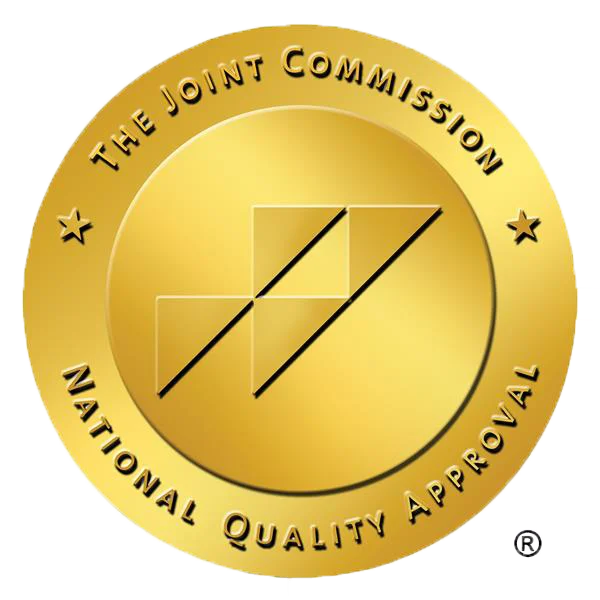Many people who struggle with substance use also carry the weight of anxiety, depression, trauma, or other emotional challenges. At Hickory Grove Recovery, we understand how deeply connected these experiences can be—and we believe both deserve care, compassion, and clinical support.
We offer comprehensive mental health treatment for co-occurring disorders as part of our inpatient program in Morrilton, Arkansas. Just outside of Little Rock, Hickory Grove Recovery is a safe, structured place to heal not just from addiction, but from the underlying struggles that may be fueling it
What are co-occurring disorders?
Co-occurring disorders happen when someone experiences substance use and emotional or behavioral health challenges at the same time. These can include conditions like:
- Depression
- Anxiety
- PTSD or trauma
- Bipolar disorder
- ADHD
- Personality disorders
- Sleep disruptions
- Psychosis or disorganized thinking
- Schizoaffective symptoms
Left untreated, these conditions can intensify cravings, make it harder to stay sober, and increase the risk of relapse. That’s why integrated care is so important. Our treatment for co-occurring disorders helps people get to the root of what they’re experiencing, so they can build a stronger foundation for recovery.

What does a connected, person-first approach look like?
At Hickory Grove Recovery, we don’t separate mental and emotional health from addiction care—we treat them together. Our treatment programs take a whole-person approach that includes medical, psychological, and therapeutic support.
Here’s what that looks like in practice:
- Comprehensive assessment: From the start, we take time to understand what someone is going through, not just what substances they’ve used. That includes their emotional health, history, strengths, and needs.
- Customized care planning: Every treatment plan is tailored to support both emotional well-being and addiction recovery, using a blend of therapy, medication management (when appropriate), and skill-building.
- 24/7 clinical support: With around-the-clock care from experienced professionals, we help stabilize symptoms and offer guidance through each stage of healing.
- Therapy that addresses both sides: Our licensed therapists are trained in treating co-occurring challenges through evidence-based methods like cognitive-behavioral therapy (CBT), motivational interviewing (MI), trauma-informed therapy, and more.
This fully integrated approach is what sets Hickory Grove Recovery apart. We don’t just treat addiction—we support people in rediscovering who they are beneath it.
How can therapy support lasting change?
Our therapeutic offerings are designed to meet people where they are and guide them toward lasting transformation. When emotional health is part of the picture, therapy becomes an essential tool for growth, insight, and healing.
Some of the key therapy options at Hickory Grove Recovery include:
- Individual therapy: Private sessions that help people explore how past pain, trauma, or emotional challenges may be tied to substance use.
- Group therapy: A space to share, learn, and connect with others navigating dual challenges.
- Family therapy: Support in rebuilding trust, improving communication, and healing together as a family.
- Trauma-focused care: Designed for those who have experienced traumatic events, this therapy helps build emotional safety and resilience.
- Life skills and holistic support: We offer education on coping strategies, stress management, nutrition, and more to support full-body healing.
These therapies are delivered in a calm, structured environment where people are treated with dignity, not judgment.
Medication-assisted support for emotional stability
When it’s appropriate, we offer medication-assisted treatment (MAT) as part of our co-occurring disorders care. Medications like Suboxone, Subutex, and Vivitrol may be used to help manage cravings or reduce the risk of relapse. For emotional symptoms such as anxiety, depression, or mood instability, our medical team can also provide safe, personalized medication management.
This combination of medical and therapeutic support helps people find balance and feel more grounded throughout recovery.

Our co-occurring disorders treatment near Little Rock
If you or someone you love is looking for co-occurring disorders treatment near Little Rock, Hickory Grove Recovery offers a welcoming space to begin again. Located in Morrilton, our residential program is designed to help people stabilize, reflect, and rebuild in a peaceful setting away from outside pressures.
Our team understands how hard it can be to ask for help, especially when addiction and emotional pain overlap. We lead with compassion and build every treatment plan with care. Whether someone is struggling with past trauma, anxiety, or long-term patterns that feel hard to break, we’re here to support the next step forward.
Why does integrated care matter?
Trying to treat addiction without addressing emotional health can leave people feeling stuck. When emotional symptoms are ignored, recovery becomes harder to sustain. That’s why mental health and addiction treatment, together, are essential.
At Hickory Grove Recovery, we believe that healing doesn’t come from quick fixes. It comes from real connection, clinical support, and the opportunity to feel at ease in your mind and body. Our co-occurring disorders program helps make that possible.
Take the next step with Hickory Grove Recovery
If someone you care about is living with substance use and emotional challenges, know that you’re not alone, and help is closer than you think.
Our compassionate team at Hickory Grove Recovery is here to walk with you through every part of the journey. We provide evidence-based, whole-person care for those who need co-occurring mental health treatment in a safe and respectful environment.
Reach out today at 501.509.5143 or online to learn more about our residential program and how we can support lasting recovery. Your story matters—and it deserves a healing path forward.
